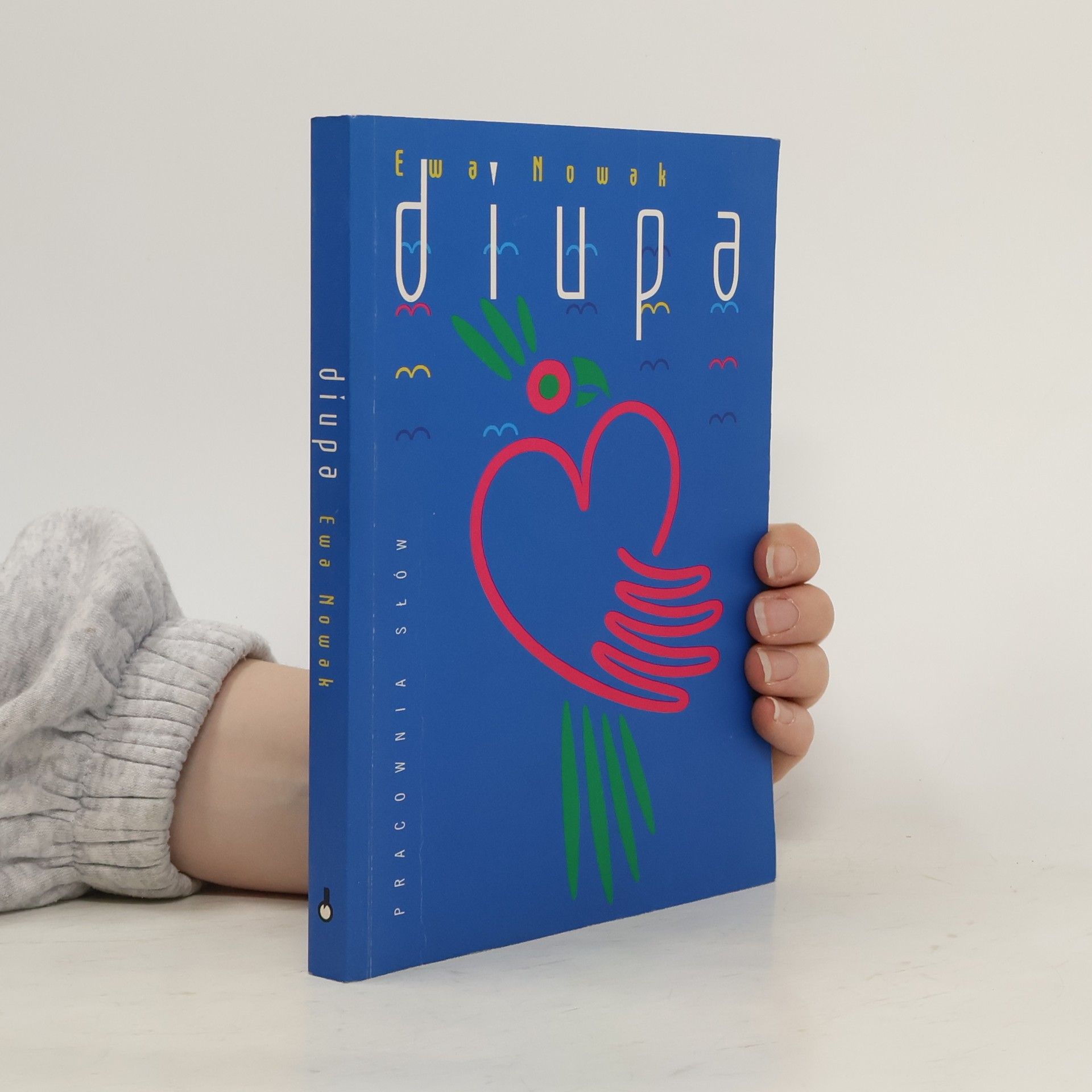Kto ratuje jedno życie, jakby cały świat ratował to cytat, który widnieje na medalu Sprawiedliwy wśród Narodów Świata. Irena Sendlerowa podczas II wojny światowej uratowała wiele osób: dzieci i dorosłych. To książka o tej niezwykłej bohaterce i ludziach, którzy jej pomagali.
Ewa Nowak Book order (chronological)
This Polish author focuses on the life challenges young people face at home and school in her works for children and adolescents. Her stories, written in essay and short story formats, offer readers practical advice while emphasizing fundamental values such as honesty, sincerity, friendship, and mutual respect. She avoids moralizing, instead crafting relatable characters that help young readers navigate complex relationships. Her approachable yet insightful style makes her a beloved storyteller for those seeking understanding and guidance.






Exploring the intersection of technology and self-identity, this book delves into how advancements in health humanities—such as transplantology, bionics, and disability studies—impact our understanding of the self. It engages with themes of phenomenology, philosophy of mind, and posthumanism, questioning whether technology enhances or undermines our identities and whether we face a fragmented sense of self in the digital age.
Marysia, uczennica szkoły baletowej, chciałaby pewnego dnia wystąpić na deskach teatru. Okazja nadarzy się szybciej, niż mogłaby sobie wymarzyć! W szkole mają się odbyć przesłuchania do Dziadka do orzechów. Czy dziewczynka spełni swoje marzenia i dostanie upragnioną rolę? Czy jej ciężka praca przyniesie rezultaty? W książce Czytam sobie. Dziadek do orzechów znajdziesz: - opowieść napisaną dłuższymi, złożonymi zdaniami liczącą 2500-2800 wyrazów, - alfabetyczny słowniczek trudniejszych wyrazów zamieszczony na końcu książki, - świetne ilustracje Ewy Beniak-Haremskiej, - wciągającą historię, dzięki której Twoje dziecko będzie chętnie rozwijać swoją czytelniczą pasję!
Oparta na faktach książka z trzeciego poziomu wspierającej naukę samodzielnego czytania serii. Znana autorka książek dla dzieci opowiada tu historię powstania jednego z najsłynniejszych baletów świata. Nie wszyscy bowiem wiedzą, że początki dzieła Piotra Czajkowskiego były bardzo trudne. Mimo wspaniałej muzyki inscenizacja nie zachwyciła widzów - poza jednym. Co było dalej? Dowiecie się właśnie z tej książki... Czytam sobie to rozłożona na trzy poziomy seria, która wspiera dzieci w wieku ok. 5-7 lat w nauce samodzielnego czytania. Kolejne poziomy dostosowane są do wzrastających kompetencji dziecka. Trzeci poziom - Połykam strony - to już bardziej zaawansowane, dłuższe historie (2500-2800 wyrazów złożonych z wszystkich głosek języka polskiego), z dialogami i zdaniami złożonymi. Wysokiej klasy czarno-białe ilustracje oraz przewaga tekstu nad oprawą graficzną dają dziecku poczucie obcowania z prawdziwą książką. W tekście występują również trudniejsze wyrazy, które zostały oznaczone gwiazdką i wyjaśnione w słowniczku na końcu książki. Format książek z serii Czytam sobie jest zgodny z wytycznymi metodyków.
Szesnastoletni Borys Orkan cierpi na depresję. Środowisko, w którym żyje, dostarcza chłopcu wiele miłości i cierpienia - jak to w życiu. Choroba sprawia, że chłopiec zaczyna widzieć swoje życie jedynie jako pasmo niekończącej się udręki. Samobójcza śmierć sąsiada i toksyczna znajomość z poznanym na oddziale psychiatrycznym Miszą prowadzą Borysa do fascynacji samobójstwem. Otoczony rodziną, znajomymi i serdeczną miłością dziewczyny, Borys odpycha wszystkich i z wolna pogrąża się w samotności. Udręczony chorobą, nie widzi już dla siebie wyjścia...
Mecz o wszystko. Czytam sobie (poziom 3.) to prawdziwa gratka dla fanów piłki nożnej, którzy potrafią już sprawnie czytać. Czy łatwo jest być piłkarzem? A może profesjonalny sport wiąże się z czymś więcej, niż tylko dobrą zabawą? Z tej książki dowiecie się więcej o codziennym życiu sportowców, poznacie także zasady fair play oraz rolę ciężkiej, systematycznej pracy nad sobą. Tę pouczającą opowieść stworzyła Ewa Nowak, popularna autorka książek dla dzieci i młodzieży, a czarno-białe ilustracje przygotowała Joanna Rusinek, wybitna rysowniczka. Czytam sobie to trzypoziomowy program literacki wspierający naukę czytania, przeznaczony przede wszystkim dla dzieci w wieku 5-7 lat. W każdej książce znajdziecie teksty wybitnych polskich autorów oraz wysokiej klasy ilustracje, które wprowadzą dzieci w świat sztuki. Z każdym kolejnym etapem rośnie poziom trudności tekstu. Książki z poziomu 3., Połykam strony, przeznaczone są dla dzieci, które potrafią już czytać. Historie składają się z 2500-2800 słów, zawierają zdania złożone i dialogi. Trudniejsze słowa oznaczono gwiazdką i wyjaśniono w słowniczku znajdującym się na końcu książki. Przewaga warstwy tekstowej nad graficzną daje dzieciom poczucie obcowania z prawdziwą literaturą. W każdej książce znajdziecie również dyplom uznania dla małego czytelnika oraz kolorowe naklejki. Bo czytanie to świetna zabawa!
Połykam strony, trzeci poziom serii Czytam sobie, to świetny sposób na utrwalenie nauki czytania. Wciągające historie, napisane dłuższymi i bardziej złożonymi zdaniami, są dziełem wybitnych polskich autorów. Duża czcionka ułatwia czytanie, a słowa zaznaczone gwiazdką są wyjaśnione w alfabetycznym słowniczku na końcu książki. Czarno-białe ilustracje i przewaga ilościowa tekstu nad ilustracjami daje poczucie obcowania z prawdziwą książką. Tytułowa Szarka to młody wilczek, który trafia pod opiekę do kilkuletniej Gabrysi. Spędzająca zimowe ferie u dziadków na wsi dziewczynka podobnie jak oni nie podejrzewa prawdziwego pochodzenia zwierzęcia, żywiąc przekonanie, że Szarka to mały piesek W jedną z ciemnych zimowych nocy o wilczka upominają się jednak członkowie jego rodziny